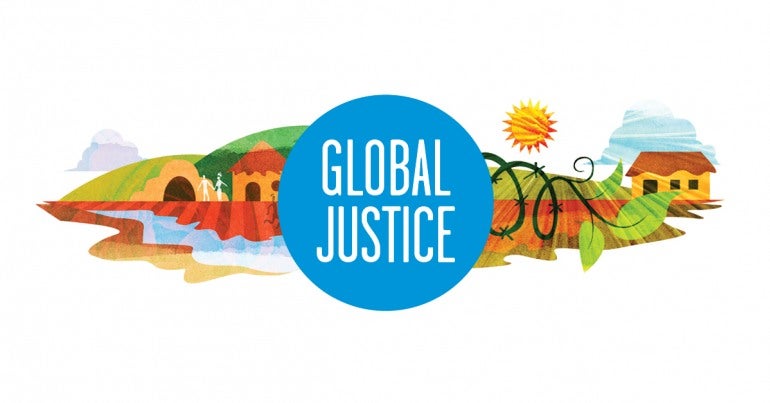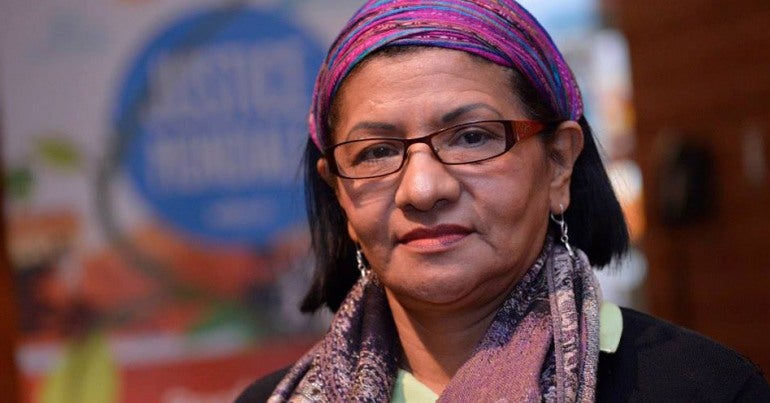 United nations commission on the status of women
United nations commission on the status of women
2015 marks the 20-year review of the Beijing Platform on Women’s Equality and Human Rights. CUPE and women trade unionists from all over the world attended the meeting of the United Nations Commission on the Status of Women in New York City in March as part of the International Trade Union Confederation (ITUC) delegation.
Delegates challenged the United Nations Commission decision to partner with the Uber Corporation. Uber is an American International company that develops, markets and operates a mobile app-based transportation network. It announced a strategic partnership with the goal of accelerating economic opportunity for women. Uber pledged to create one million jobs for women as drivers by 2020.
The trade union delegation united around a shared concern that the creation of one million precarious, informal jobs at Uber would not contribute to women’s economic empowerment. This partnership represents exactly the type of structural inequality within the labour market that women have been fighting for decades. Women need good stable jobs, decent wages and benefits.
Following the intervention by union delegates, the broader gathering of UN women reconsidered the partnership and announced that they had cancelled the agreement.
Both Sheryl Burns, Co-Chair National Women’s Committee and Elizabeth Dandy, CUPE Equality Director attended on behalf of CUPE.
TRADE SUMMIT
During a meeting organized in September 2014, by the Public Services International (PSI) unions and trade justice groups met to discuss the danger of ongoing multinational trade negotiations to the public sector and democracy.
The PSI along with the Our World is not for Sale network released The really good friends of transnational corporations agreements a report about the Trade in Services Agreement (TISA). The report talks about the regulatory system behind TISA and how it aims to impose irreversible deregulation in various sectors, from health care to education, from financial services to data and communication.
SYMPOSIUM ON QUALITY PUBLIC SERVICES AND THE ROLE OF TRADE UNIONS – JAPANESE TRADE UNION CONFEDERATION (RENGO)
The Japanese Trade Union Confederation asked the Canadian Labour Congress to send a representative to participate in a symposium in Tokyo in February 2015. The Congress contacted CUPE to see if we could send one of our specialists to discuss the role of trade unions in delivering quality public services. Japanese unions wanted to exchange information and experiences about how to ensure international labour standards are applied to public employees and to discuss the role of unions in providing quality public services.
CUPE Researcher Keith Reynolds attended the meeting and reported on the state of the public sector in Canada, and discussed the role of unions in protecting public services. He underlined Canadian unions’ work to protect public services in the face of cuts and privatization.
The Japanese Trade Union Confederation (RENGO) was created in 1989 as a labour central uniting the public and private sector unions. RENGO represents 6.75 million workers in Japan, approximately 12 per cent of Japanese workers. More than 80 per cent of Japanese workers are not unionized.
RENGO’s five point vision for a “secure society based on work” includes lifelong learning, a new child care system, job introduction services, vocational training for unemployed workers and support for the elderly.
 WORLD PRIDE 2014
WORLD PRIDE 2014
Toronto hosted the World Pride and Human Rights Conference in July 2014. This was the first ever World Pride held in North America and the fourth such festival in the world.
The conference brought together more than 400 activists, educators, researchers, and policy-makers from over 50 countries around the world. Participants shared experiences, celebrated gains, took stock of the struggles ahead and discussed strategies for change at the local, regional, national and global levels.
CUPE’s delegation included National Pink Triangle Committee members Julie Van Tassell (CUPE 3885, Nova Scotia), Lorenzo Dufrane (CUPE 998, Manitoba) and Audrey Gauthier (CUPE 4041, Quebec), transsexual/transgender representative, and Wendy Johnston CUPE equality representative from the Maritimes.
Conference highlights included presentations on the effects of colonization on two-spirited people in Canada and two-spirited youth activism. Two spirited is an expression used to describe a native person who identifies as gay, lesbian, or transgender. Other highlights of the conference included: the power of boycotts and grassroots organizing in the hotel sector; the international fight against HIV criminalization; the situation of LGBT refugees in Canada; aging; health care and social needs; the role of Pride parades in global advocacy; asexuality in sexual education; and trans rights in Asian countries.
The 10-day global celebration in Toronto culminated in a massive World Pride parade.
INTERNATIONAL TRADE UNION CONGRESS (ITUC)
At first glance trade union engagement with the International Monetary Fund (IMF) and the World Bank (WB) seems implausible. And with good reason. However through bi-annual meetings and ongoing efforts by the International Trade Union Congress (ITUC) and Global Union Federations (GUFs) there has been a slight shift in attitude on some key issues of fiscal policy, equality, and the importance of public services.
CUPE attended the bi-annual high-level meetings of the International Trade Union Congress (ITUC) and Global Union Federations (GUFs) with the IMF and WB officials. In February 2015 as part of the Public Services International (PSI) delegation.
Dialogue has lead to recent research and statements from the IMF and WB about the negative economic repercussions of increased inequality, on the necessity of public investment and wage-led growth and appreciation for the positive role of trade
unions, minimum wages and labour standards represent a broadening of perspective for these influential organizations.
Despite these statements, major and fundamental differences remain on key issues - but occasionally the efforts bear fruit, or at least a less bitter harvest.



 WORLD PRIDE 2014
WORLD PRIDE 2014

